Search Results
Showing results 1 to 20 of 130
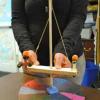
Carousel Pump
Source Institutions
In this activity, learners build a carousel toy that spins when pushed down.
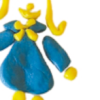
Make Your Own Sculpture Dough
Source Institutions
In this activity on page 7 of the PDF, learners follow a recipe to make a dough similar to the clay artists use to make sculptures.
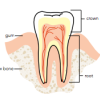
Paper Cover Up
Source Institutions
In this activity on page 11 of the PDF, learners use candle wax to make "invisible" designs that are revealed with watercolor paints.
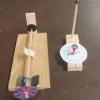
Magnetic Spinner & Compass
Source Institutions
Learners use shop tools and various materials to construct a magnetic spinner and a compass.
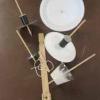
Tops
Source Institutions
In this activity, learners discover that some things only stand up while they are spinning.
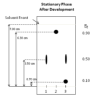
Chromatography Can Separate!
Source Institutions
In this chemistry activity, learners use thin layer chromatography to determine the molecular composition of different markers.
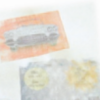
Newspaper Collage
Source Institutions
In this activity on page 3 of the PDF, learners create a collage by using vinegar to transfer color pictures from a newspaper onto a piece of white paper.
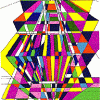
Our Sense of Sight: Color Vision
Source Institutions
In this activity, learners investigate color vision as well as plan and conduct their own experiments.

Incredible Shrinking Shapes
Source Institutions
In this activity, learners get hands-on experience with ratios and scaling while making their own jewelry out of recycled plastic containers.
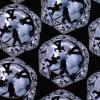
Spherical Reflections
Source Institutions
In this art meets science activity, learners pack silver, ball-shaped ornaments in a single layer in a box to create an array of spherical reflectors.
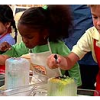
Art with Salt and Ice
Source Institutions
This open-ended art project allows learners to create their own colorful ice sculpture by using rock salt and food coloring on a solid block of ice.
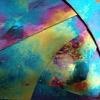
Iridescent Art
Source Institutions
This is a quick activity (on page 2 of the PDF under Butterfly Wings Activity) that illustrates how nanoscale structures, so small they're practically invisible, can produce visible/colorful effects.
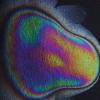
What is Nanotechnology?
Source Institutions
In this activity related to nanotechnology, learners observe some of the effects that result from creating a thin layer of material several nanometers thick.
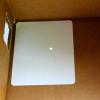
Pinhole Viewer
Source Institutions
In this activity, learners discuss and investigate how cameras, telescopes, and their own eyes use light in similar ways.

Space Stations: Sponge Spool Spine
Source Institutions
In this activity, learners simulate what happens to a human spine in space by making Sponge Spool Spines (alternating sponge pieces and spools threaded on a pipe cleaner).

Universal Indicator Rainbow Trout
Source Institutions
In this activity on page 2 of the PDF, learners discover how color changes can help scientists distinguish between acids and bases.
Moving Pictures
Source Institutions
In this optics activity, learners create flip books by drawing an image like an eye opening and closing on 24 small pages of paper.
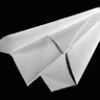
Paper Airplanes
Source Institutions
In this activity, learners explore the properties of paper by constructing and modifying paper airplanes.
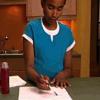
Invisible Ink
Source Institutions
In this simple chemistry activity (page 1 of PDF under SciGirls Activity: Colorblind Dogs) about acids and bases, learners will mix a baking soda and water solution and use it to paint a message on a
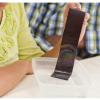
Rainbow Film
Source Institutions
In this activity, learners use clear nail polish to create a beautiful iridescent pattern on black paper. Learners discover that a thin film creates iridescent, rainbow colors.
